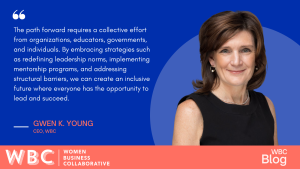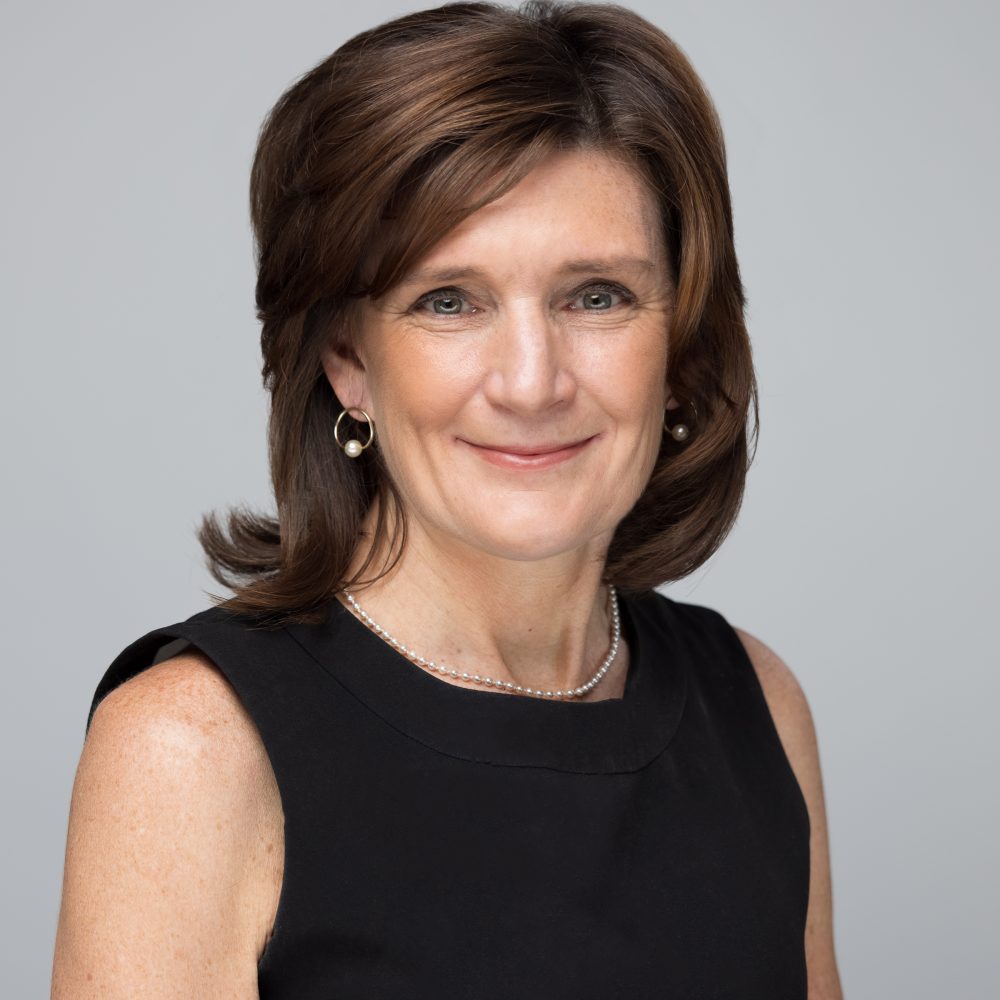
As 2025 approaches, the business world stands at a pivotal moment. The push for gender equity and leadership is not just a social imperative—it’s a sound business strategy. Research and corporate leaders consistently highlight that organizations with diverse leadership teams outperform their peers in innovation, financial performance, and employee satisfaction.
By investing in women, we’re not only fostering equity but also driving economic growth. In 2025, WBC will continue its mission to advance women leaders, working toward equal position, pay, and power for all women in business while building a more inclusive business landscape.
The Business Case for Investing in Women
The statistics are clear: companies with more women in leadership roles see tangible benefits. A McKinsey study revealed that firms in the top quartile for gender diversity were 25% more likely to outperform financially. Diverse leadership teams bring a broader range of perspectives, driving better decision-making and fostering innovation, especially in technology and across consumer goods.
Despite these advantages, women remain underrepresented in leadership roles. According to the 2024 Women CEOs in America Report, annual research done by WBC with Partner Organizations Catalyst, C200, and Ascend, women make up only 8.7% of CEOs in public and private companies. Additionally, women also occupy only 28% of senior management roles globally, with even lower representation in certain industries. Closing this gap isn’t just about fairness—it’s about unlocking untapped potential and creating a business ecosystem where everyone thrives.
WBC collaborates with over 86 organizations, 65 companies, and 274 individuals to accelerate progress for women in business—from boardrooms to technology sectors. Our innovative initiatives and community expertise spans from allyship and sponsorship programs to flexible work policies. One key example of this is WBC’s Pay Equity Playbook, which guides companies in addressing wage gaps. When organizations conduct pay audits and correct disparities, they demonstrate a genuine commitment to women’s advancement and to building a sound business.
Accelerating impact requires accountability. Companies must set clear diversity goals, track progress, and hold leaders accountable. WBC’s Staffing Industry Workstream, led by leaders from major staffing agencies, has shown how data transparency and collaboration can elevate women across the industry. The workstream surveyed companies and published a Staffing Industry Dashboard to assess gender diversity in staffing companies. What gets measured gets managed—data drives action. By publishing metrics and sharing progress reports, organizations foster transparency and catalyze cultural change.
WBC also works with its partners on building women-owned businesses. Entrepreneurship is pivotal in creating a diverse business landscape. According to the 2024 Impact of Women-Owned Businesses Report from Wells Fargo and Partner Women in Public Policy (WIPP), women comprise nearly 40% of small businesses, with a 41% year-over-year growth rate from 2023 to 2024, outpacing their male counterparts by 25%.
WBC collaborates with Partners like WBENC, Enterprising Women, Astia, Golden Seeds, and Springboard to support women entrepreneurs. This includes the annual Women’s Capital Summit, which provides valuable insights into the world of capital, offering a deep understanding of its dynamics, strategic relevance at different stages of a company’s growth, and the effective utilization of capital resources with a focus on building relationships between entrepreneurs and investors.
WBC and its partner organizations work to create grants, incubators, and networking opportunities tailored for women entrepreneurs, ensuring they have the resources needed to scale their businesses and contribute to economic growth. It is by working together with our partners but also the government and business community that we can drive to change.
Changing the Narrative
Advancing women in leadership requires a cultural shift that challenges stereotypes and celebrates all women in business. Media, conferences, and public platforms must spotlight women leaders across industries, normalizing their leadership and inspiring emerging generations of leaders. WBC’s Action for Impact Summit celebrated three leading CEOs from Amalgamated Bank, Fannie Mae and Otis Elevators and four Trailblazers who have achieved lasting impact for women in their companies and communities. A4I panels also showcased over 60 leading expert speakers in corporate performance, covering topics from AI to belonging to executive boards.
Organizations can amplify these efforts by featuring women leaders in marketing campaigns, keynote speeches, and internal communications. Representation matters — seeing women excel in leadership roles motivates others to follow suit.
Conclusion: A Vision for 2025
In 2025, advancing women in corporate leadership and building a diverse business landscape should no longer be an aspiration—it must become a reality. Businesses have a unique opportunity to lead the charge by investing in women and reaping the rewards.
The path forward requires a collective effort from organizations, educators, governments, and individuals. By embracing strategies such as redefining leadership norms, implementing mentorship programs, and addressing structural barriers, we can create an inclusive future where everyone has the opportunity to lead and succeed.
Investing in women is not just the right thing to do—it’s smart business. Let’s make 2025 the year we turn intention into action, building a more equitable and prosperous world for all.



